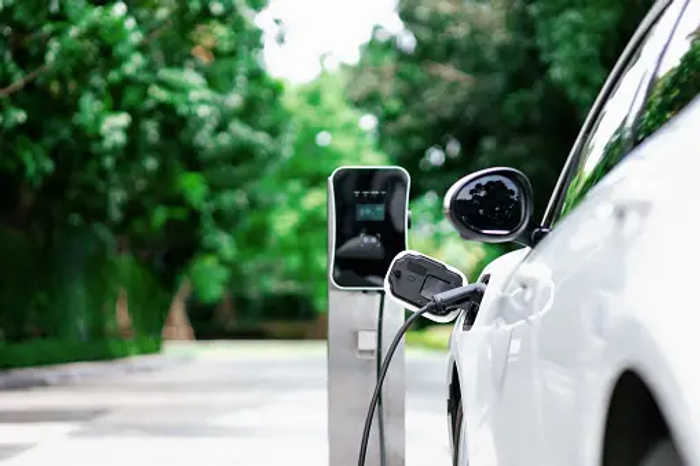Published 17:40 IST, March 18th 2024
The policy sets formidable targets, aiming for a 25% localisation rate within the third year and a robust 50% by the fifth year.
Advertisement
EV policy gets government nod: In a strategic move aimed at boosting India's stature as a prime destination for electric vehicle (EV) manufacturing, the government has given the nod to an ambitious E-vehicle policy tailored specifically for four-wheelers (4Ws).

Image Credits: Unsplash
Advertisement
With an overarching objective to localise production, the policy sets formidable targets, aiming for a 25 per cent localisation rate within the third year and a robust 50 per cent by the fifth year.
Central to the policy are several pivotal provisions designed to stimulate investment and accelerate the establishment of EV manufacturing facilities within the country. An investment commitment of at least Rs 41,500 crore (approximately $500 million) is mandated, with no upper limit imposed, signalling a clear intent to attract major capital infusion into the EV sector.
Advertisement
Under the prescribed timelines, companies are granted a three-year window to establish manufacturing units in India and commence commercial production of EVs, ensuring expeditious implementation of the policy's objectives.
To incentivise localisation efforts, a customs duty of 15 per cent will be imposed on vehicles valued at a minimum of $35,000, provided the manufacturer establishes domestic manufacturing facilities within the stipulated time frame.
Advertisement
-1710734895659.webp)
Image Credits: Unsplash
Furthermore, to encourage foreign direct investment and incentivise manufacturers to set up base in India, the policy outlines provisions for duty exemptions on imported EVs, subject to adherence to specified investment commitments and localisation targets.
Advertisement
Notably, a maximum of 40,000 EV imports will be permitted annually, with allowances for unutilised import quotas to be carried over, bolstering the policy's flexibility.
In a proactive move to safeguard against potential non-compliance, the government mandates bank guarantees to underpin investment commitments, with provisions for invocation in case of failure to meet prescribed criteria.
Advertisement
Implications for Indian OEMs
While the policy primarily targets 4W EVs, its ramifications extend beyond borders, with potential ramifications for domestic original equipment manufacturers (OEMs), particularly in the four-wheeler segment, brokerage firm Motilal Oswal said in a note. Notably, the entry of global heavyweights such as Tesla and Vinfast into the Indian market could reshape the competitive landscape notably.
Tesla's imminent foray into India, coupled with the prospective launch of its affordable Model 2, presents a formidable challenge for domestic players, notably Tata Motors, currently at the forefront of the EV race in India.
Similarly, Vinfast's announced investment of $2 billion underscores the growing allure of India as a lucrative EV manufacturing destination, further intensifying competition for local OEMs.
Motilal Oswal foresees a surge in global OEM interest and the development of a robust EV ecosystem in India. Stressing upon the potential benefits for domestic auto component players, the Mumbai-based brokerage underscores the need for strategic investments in advanced technologies to capitalise on emerging opportunities.
As global OEMs contemplate investments in India, the pricing dynamics of EV launches assume critical importance, with offerings below the Rs 20 lakh-mark likely to resonate strongly with Indian consumers.
Against this backdrop, the brokerage firm underscores the imperative for domestic OEMs to fortify their competitive positioning amidst evolving market dynamics.
As the government's E-vehicle policy takes centre stage, all eyes remain firmly fixed on the unfolding developments, with industry stakeholders set to navigate a transformative period in India's automotive landscape.
09:39 IST, March 18th 2024